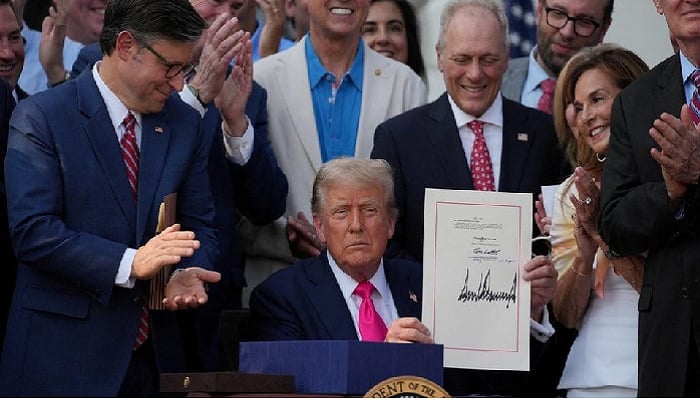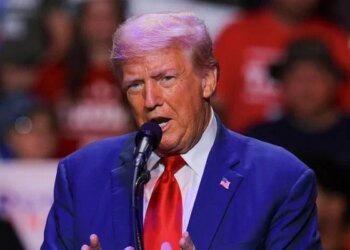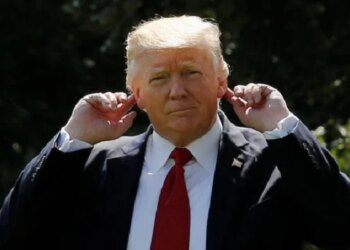Select Language:
Trump Signs Major Tax and Spending Bill into Law on July 4, 2025
On July 4, 2025, President Donald Trump officially signed a significant tax and spending legislation known as the “One Big Beautiful Bill Act” during a ceremony at the White House. This event followed a narrow approval from the Republican-majority House of Representatives the previous day.
The newly passed bill supports Trump’s immigration initiatives, makes the tax cuts from 2017 permanent, and is anticipated to strip millions of Americans of their health insurance coverage. It received a contentious 218-214 vote in the House, reflecting the deep divisions over its implications.
In his remarks at the ceremony, Trump expressed gratitude to key Republican leaders, including House Speaker Mike Johnson and Senate Majority Leader John Thune, for their efforts in advancing the bill through Congress. “I’ve never seen so many people happier in our country because of this—military and civilians alike are being taken care of,” Trump stated.
The ceremony was highlighted by a military flyover featuring stealth bombers and fighter jets, reminiscent of recent military actions in Iran. Hundreds of attendees gathered on the South Lawn, including White House staff, lawmakers, and military families.
This legislation marks a crucial victory for Trump and his Republican supporters, who argue that it will stimulate economic growth. Critics, however, have raised alarms that it could add over $3 trillion to the national debt, currently standing at $36.2 trillion.
Despite some dissenting voices within the Republican Party expressing apprehensions about its financial ramifications and potential impact on healthcare programs, only two out of 220 Republicans in the House voted against it. This dissent stood in contrast to the unanimous opposition from all 212 Democrats.
The bill’s path was also prominently challenged by House Democratic Leader Hakeem Jeffries, who delivered a marathon speech lasting over eight hours, condemning the bill as a giveaway to wealthy individuals at the expense of low-income Americans, particularly affecting their access to federally supported healthcare and food assistance.







